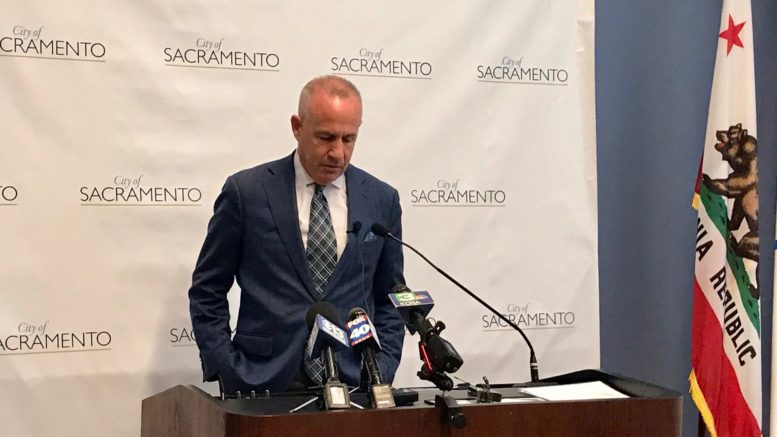Editor’s note: The mayor wanted more power, but his resounding defeat at the polls will weaken him
Mayor Darrell Steinberg easily won re-election in March, and won high marks for his handling of the COVID-19 pandemic.
Then, he took a high-stakes risk to seek “strong mayor” powers in his final four years in office.
It appears to have backfired.
In incomplete returns as of Nov. 13, Measure A—the Sacramento Mayoral Accountability and Community Equity Act of 2020—was going down to defeat, 57% to 42%. If that margin holds, it would be similar to then-Mayor Kevin Johnson’s strong mayor measure in 2014, which lost 56% to 44%.
“I am disappointed but have the greatest respect for the voters of Sacramento,” Steinberg said in a statement. “I am ready to launch a second term under this system and fight for the same causes and people that motivated me to serve as our City’s mayor. I’m looking forward to working with my new and returning colleagues on the major issues facing our city, including furthering economic and racial equity, addressing homelessness and the lack of affordable housing, and combating climate change.”
While the mayor is trying to put the best face on the result, it’s a defeat that will likely weaken Steinberg over the next four years.
For one thing, holdover City Councilman Jeff Harris voted against putting strong mayor before voters, and incoming Councilwomen Katie Valenzuela and Mai Vang led the campaign against it. So he has some fence-mending to do.
For another thing, Steinberg put himself on the opposite side from past and potential allies among neighborhood and labor leaders—and the powerful firefighters union. If, as seems likely, the city faces a painful budget crunch next year, the mayor will have less goodwill to use.
Steinberg didn’t know that 10 days after the council put “strong mayor” on the ballot, a judge would order the city to put Measure C—the rent control measure that Steinberg and the rest of the City Council opposed—on the ballot as well. That changed the political calculus because it may have brought out voters who supported stronger rent control and who were more likely to oppose strong mayor, even though the measure appears to have lost by an even bigger margin—61% to 38%, as of Wednesday morning.
But in drafting the “strong mayor” measure, Steinberg also made some calculations that hurt his cause.
There was the late confusion and controversy over the term limit section that Steinberg added to get enough council support to get Measure A on the ballot. While his team says he intended for the two-term limit to apply to him—and while the campaign suggested it would—an Oct. 21 opinion from the city attorney’s office declared that it didn’t cover him. That would have meant that he could run again in 2024 after serving two terms, though he insists he won’t. Still, the opposition campaign accused him of misleading voters.
The mayor also made “equity” a big selling point by including a section requiring the city to evaluate spending and policy decisions on how they promoted racial and gender fairness. But by refusing to put the equity piece into a separate measure, he opened himself up to criticism that he was holding it hostage for more power. He also didn’t follow through on a pledge to take action on equity before Election Day. While a council committee started debating equity in September, its proposal isn’t scheduled to get to the full council until Dec. 8.
Steinberg also included a requirement that the city invest at least $40 million a year in “inclusive economic development.” But that prompted the city firefighters union, with all its fund-raising might and volunteer manpower, to help lead the opposition to “strong mayor.” And it may have only reminded voters that he didn’t keep a similar campaign pledge on the Measure U sales tax increase approved in November 2018. Instead, much of the revenue was used to shore up the police and fire department budgets.
Politics is often about timing. And Steinberg is now acknowledging that it might have been the wrong time.
He also polled on strong mayor last year and decided not to move forward. He determined that the time was right this year, despite the deadliest public health crisis in a century.
He bet wrong. Now, he has to live with the consequences.






Be the first to comment on "Steinberg’s big gamble"